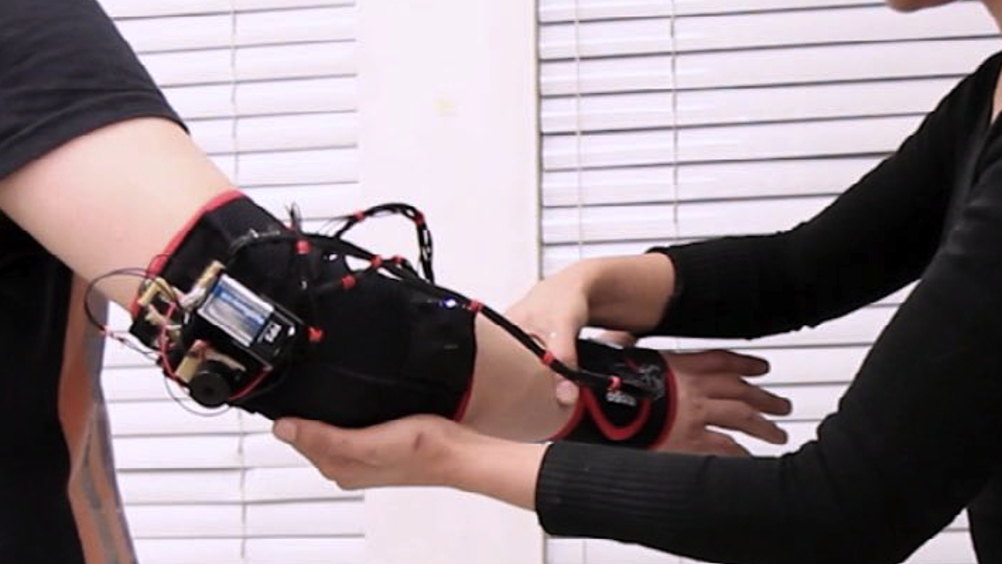Blind athletes help students to create a wearable coaching aid
Postgraduate engineering students are working with blind athletes to design a wearable coaching aid that gives haptic feedback when certain moves are correctly executed.

The work is part of the Innovation Design Engineering (IDE) masters programme run jointly by Imperial College and the Royal College of Art.
As part of the course, mining company Rio Tinto has launched a ‘Sports Innovation Challenge’ for new paralympic opportunities, ranging from equipment through to radical new sporting events and competition models.
The teams had the chance to do research and work with paralympians such as blind triathlete Iain Dawson.
‘As a visually impaired person, you don’t develop the same kind of kinaesthetic awareness — so we began with how you can rebuild body awareness and how you can actually have a feeling of where your limbs are in space, if you lost your sight, for instance,’ said IDE student Benedict Copping.
Noting that the vast majority of sighted athletes use coaching demonstrations or video-analysis techniques to perfect complex motion skills, Copping’s team wanted to find a way for blind athletes to similarly benefit.
Register now to continue reading
Thanks for visiting The Engineer. You’ve now reached your monthly limit of news stories. Register for free to unlock unlimited access to all of our news coverage, as well as premium content including opinion, in-depth features and special reports.
Benefits of registering
-
In-depth insights and coverage of key emerging trends
-
Unrestricted access to special reports throughout the year
-
Daily technology news delivered straight to your inbox










Water Sector Talent Exodus Could Cripple The Sector
Well let´s do a little experiment. My last (10.4.25) half-yearly water/waste water bill from Severn Trent was £98.29. How much does not-for-profit Dŵr...